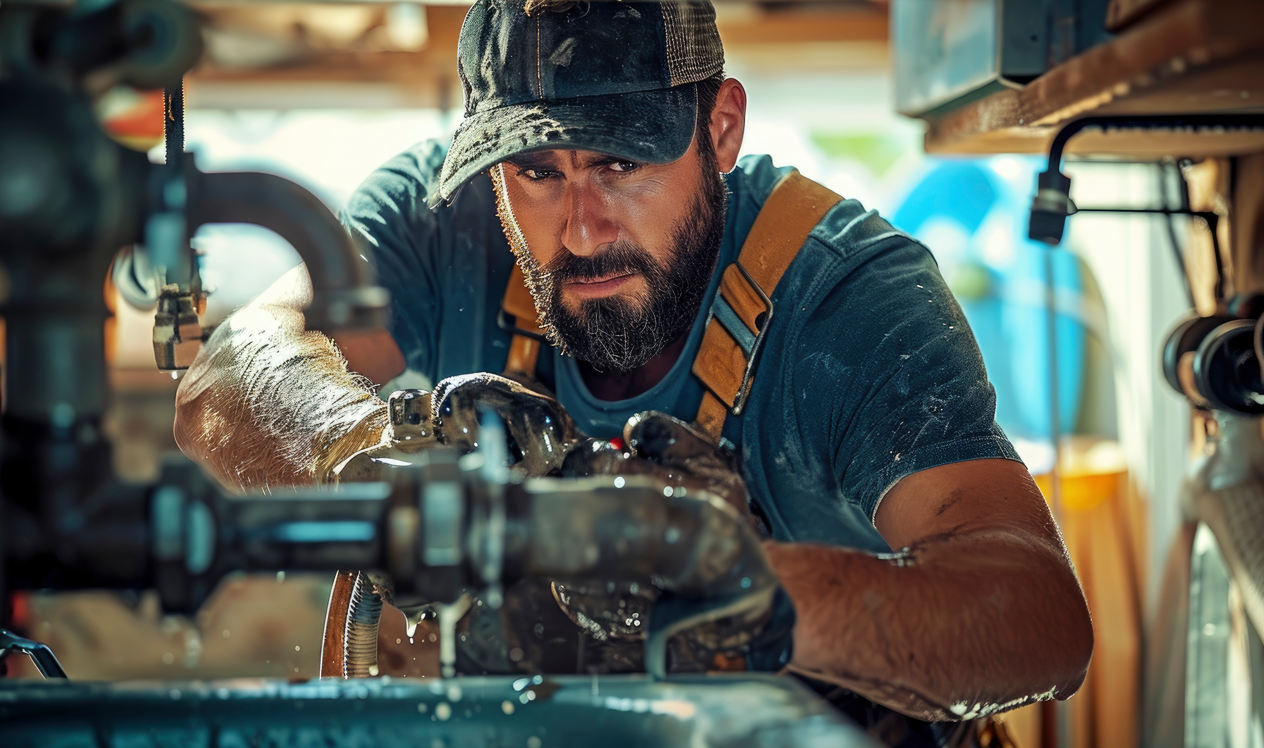Grease traps are essential components in commercial kitchens, preventing FOG (fats, oils, and grease) from clogging plumbing systems. However, these devices can face complications and need timely repairs to function efficiently. In this blog post, we will explore why handling complex grease trap repairs requires professional expertise. From understanding the intricacies of grease traps to exploring the benefits of hiring professionals, this guide will provide valuable insights for business owners seeking efficient solutions.
Understand Grease Traps and Their Importance
Grease traps are pivotal in maintaining a functional and sanitary kitchen. These devices capture FOGs from wastewater before they enter the plumbing system, preventing clogs and blockages.
In commercial kitchens, the sheer volume of cooking operations generates substantial quantities of grease. Without grease traps, this grease would enter the plumbing system and cause severe blockages. Over time, these blockages can lead to costly repairs and even health hazards.
Thus, grease traps not only protect plumbing systems but also ensure the smooth operation of commercial kitchens. Regular maintenance and timely repairs are essential to keep these devices working correctly.
Recognize Signs of Grease Trap Problems
Identifying issues early can prevent minor problems from escalating into costly repairs. There are several telltale signs that your grease trap may need attention.
Foul odors are one of the first indicators of grease trap issues. If your kitchen starts to smell unpleasant, it might be due to trapped grease that hasn’t been removed properly. Regular cleaning can mitigate this, but persistent odors may signal a deeper problem.
Slow drainage is another common sign. When grease builds up in the trap, it can restrict the flow of water, causing sinks and drains to empty slowly. This not only disrupts kitchen operations but can also indicate a significant blockage.
Finally, visible grease in the sinks or around the trap suggests that the device isn’t functioning correctly. This can lead to compliance issues with health regulations, making prompt repairs essential.
Complexity of Grease Trap Repairs
Grease trap repairs are not as straightforward as they might seem. The complexity arises from several factors.
Firstly, grease traps are often located in hard-to-reach places. This makes inspection and repair challenging without the proper tools and expertise. Additionally, diagnosing the exact problem requires knowledge of the trap’s design and operation.
Secondly, different types of grease traps have varying maintenance needs. Passive traps, for example, rely on physical barriers to separate grease, while automatic ones employ mechanical components. Understanding these differences is crucial for effective repairs.
Finally, dealing with accumulated grease involves handling hazardous materials. Improper disposal can lead to environmental damage and legal repercussions. Therefore, expertise in safe and compliant disposal methods is necessary.
Benefits of Hiring Professional Plumbers for Grease Trap Repairs
While some may consider DIY fixes, hiring professional plumbers for grease trap repairs offers numerous advantages.
Professionals have the right tools and training. They can quickly diagnose and address issues, minimizing downtime in your kitchen. Their experience with various grease trap models ensures that repairs are done correctly the first time.
Safety is another significant benefit. Handling grease and associated waste requires proper precautions. Professional plumbers adhere to safety standards, protecting both themselves and your staff from potential hazards.
Lastly, professional repairs often come with warranties. This provides peace of mind, knowing that if an issue arises shortly after a repair, it will be addressed without additional cost. This long-term reliability is invaluable for busy commercial kitchens.
Role of Regular Maintenance in Preventing Complex Repairs
Preventative maintenance is key to avoiding complex and costly repairs. Regular upkeep ensures grease traps function efficiently and prolong their lifespan.
Scheduled cleaning is a fundamental aspect of maintenance. By regularly removing accumulated grease, you prevent blockages that can lead to significant issues. Professional services can tailor cleaning schedules based on your kitchen’s usage, ensuring optimal performance.
Inspections are equally important. Regular check-ups can identify potential problems before they become severe. This proactive approach saves time and money in the long run.
Documentation of maintenance activities helps track the condition of your grease trap. Keeping records of cleaning and inspections aids in compliance with local health regulations and provides a history that can be invaluable for troubleshooting future issues.
Importance of Professional Expertise
Professional expertise is essential for grease trap repairs due to their complexities. Experienced plumbers bring specialized knowledge, quickly identifying issues and providing lasting solutions. They stay updated on industry standards, ensuring compliance with local laws for commercial kitchens. Investing in professional services not only prevents costly breakdowns but also allows business owners to focus on their core operations. Trusting experts like Plumbrite Services, LLC ensure efficient and reliable solutions for maintaining grease traps effectively.


